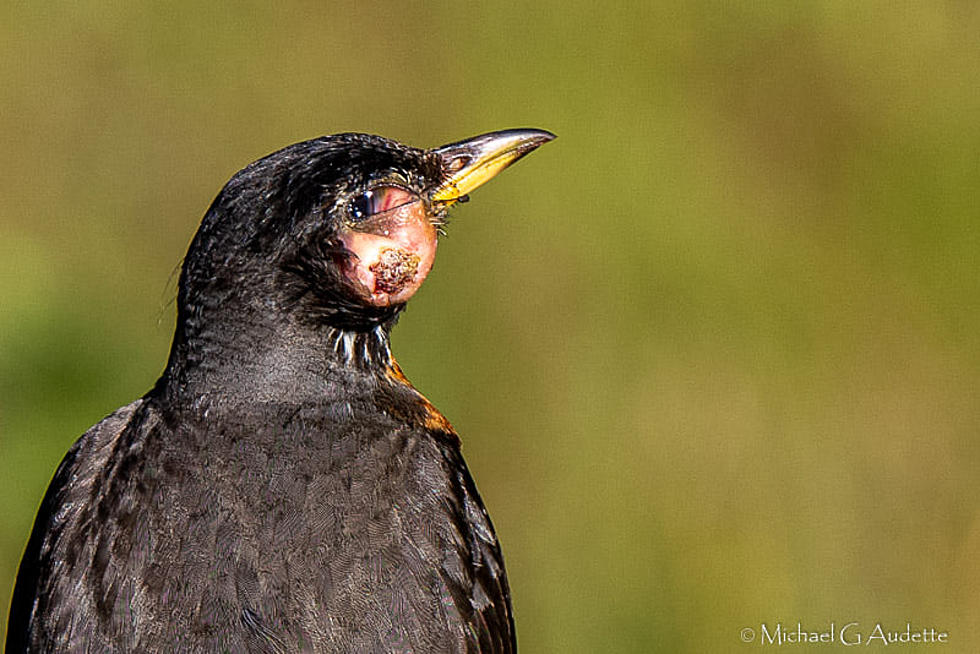
Diseased Robin Found in Thomaston, CT DEEP Urges Caution
You may have heard recently about a mysterious illness that's causing birds to suffer, and in some cases die off in large numbers, in the Mid-Atlantic, Upper Midwest, and the Southeastern portion of the United States.
Connecticut has been lucky so far, but based on a statement from the Connecticut Department of Energy and Environmental Protection (CT DEEP) and a social media post from the Litchfield Hills Audubon Society, our luck may have just run out.
The DEEP issued a press release last week urging Connecticut residents to stop feeding wild birds, take down their bird feeders and bird baths and disinfect them. Also, The CT DEEP urges CT residents to keep themselves and their pets away and use caution when you encounter sick or injured birds. Do not touch.
Just after the CT DEEP issued their statement, the Litchfield Hills Audubon Society wrote up an article that included a photo of an American Robin that one of their members found in Thomaston, that appears to show how the disease affects its victim. This mysterious new unnamed disease manifests with eye and neurological symptoms, including discharge and swelling of the eyes, tremors, paralysis and excessive chirping and singing.
The disease so far has appeared in common songbirds, including American Robins, Common Grackles, Blue Jays, and European Starlings, but the disease is not exclusive to those species, many more have been infected.
So, what should you do? First, stop feeding and leaving water out for wild birds, at least temporarily, until the illness is identified and we know what exactly that we're dealing with.
Take your feeders and baths down and wash them in a solution with 10% bleach. If you encounter a bird that seems to be infected, stay away, don't touch and if you can, take a photo of it and remember exactly where you are. Then contact a licensed wildlife rehabilitator. Click HERE for the list. If you find a dead bird, or even worse, birds, report them to the CT DEEP Public Dead Bird Database by clicking HERE.
LOOK: 30 fascinating facts about sleep in the animal kingdom
More From The Wolf









